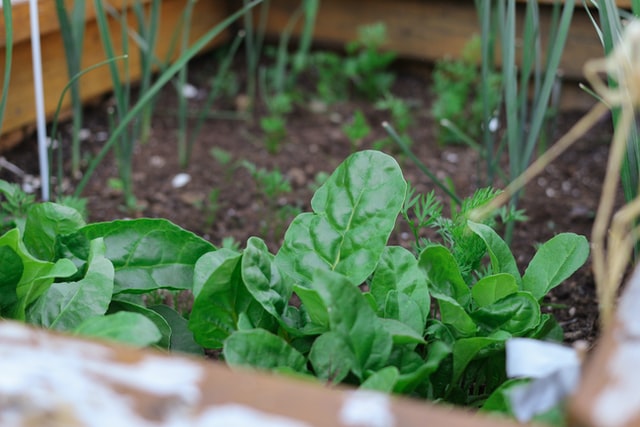The winter months are approaching, but here in Florida, your home gardening plans don’t need to be put on pause! The good part of Florida winters being mild in temperature is that there are still many vegetable options to choose from.
If you are looking for some edible garden ideas, below are some vegetables, starches, and fruit!

Broccoli
Broccoli is part of the Brassica oleracea species. An interesting fact is that kale, cabbage, cauliflower, and brussel sprouts all originated from Broccoli!
Specific Plant Varieties For Florida:
- Waltham 29
- Early Green
- Early Dividend
Nutritional value: Broccoli is a great source of calcium, iron, and vitamins A and C.
Companion Plants:
- Basil
- Cucumber
- Celery
If you would like to learn more about companion planting, take a look at our article Companion Gardening 101!
Not Companions:
- Grapes
- Strawberries
- Mustards
Growing Methods: Broccoli thrives in cold weather and takes about 80-100 days to mature. This means that planting broccoli at the height of the winter season will be most effective. Firstly, the transplants will need to be fertilized when planted and throughout their growth. In addition, broccoli needs about four to six hours of sun every day. Also, it needs one to two inches of water per week.
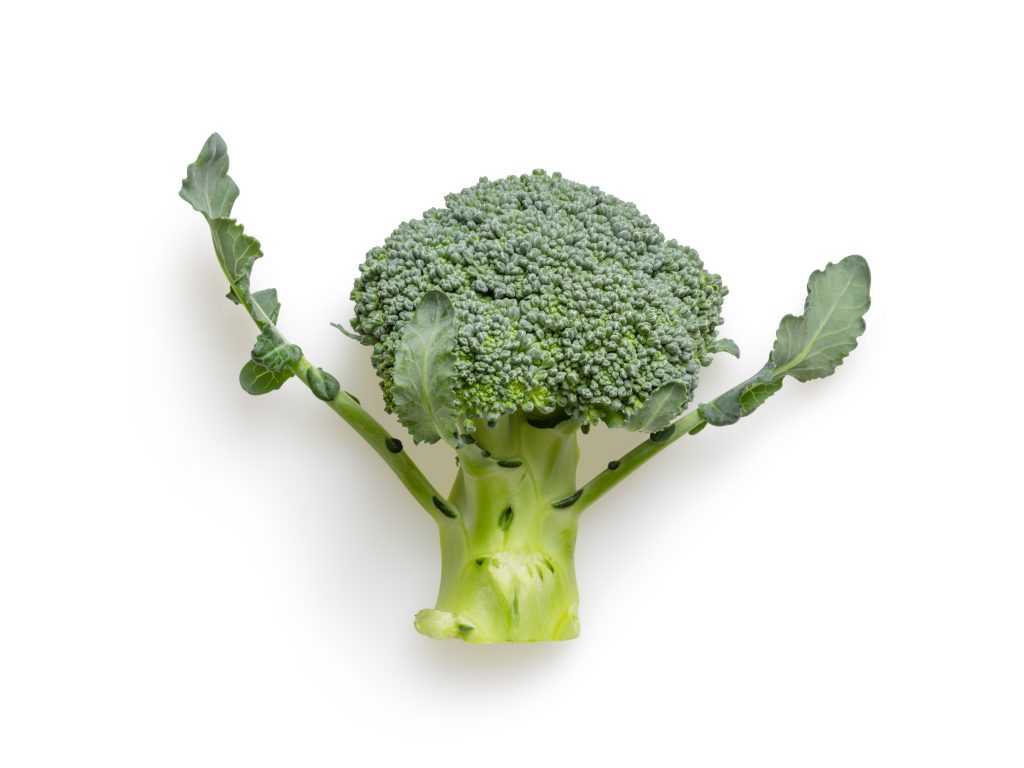
Potatoes
Potatoes are a starchy root vegetable that is native to the Americas. They are a good crop for home gardening.
Specific Plant Varieties For Florida:
- Yukon Gold
- Red Pontiac
- Norkotah
When thinking about growing your own potatoes, avoid planting those from grocery stores because they can sometimes be treated to not sprout. Instead, search for “seed potatoes.”
Nutritional value: Potatoes are surprisingly an excellent source of vitamin C and potassium.
Companion Plants:
- Corn
- Onion
- Passionfruit
Not Companions: It is not advisable to plant potatoes with or around fennel and brassicas (cabbages and mustards).
Growing Methods: Once you have found the seed potatoes, find a spot of soil with full sun. Second, dig six-inch deep holes to bury the potatoes in. Make sure to water the potatoes on a regular basis. Then, mound up dirt around the stems as they sprout. After about three months you can harvest your own grown potatoes.
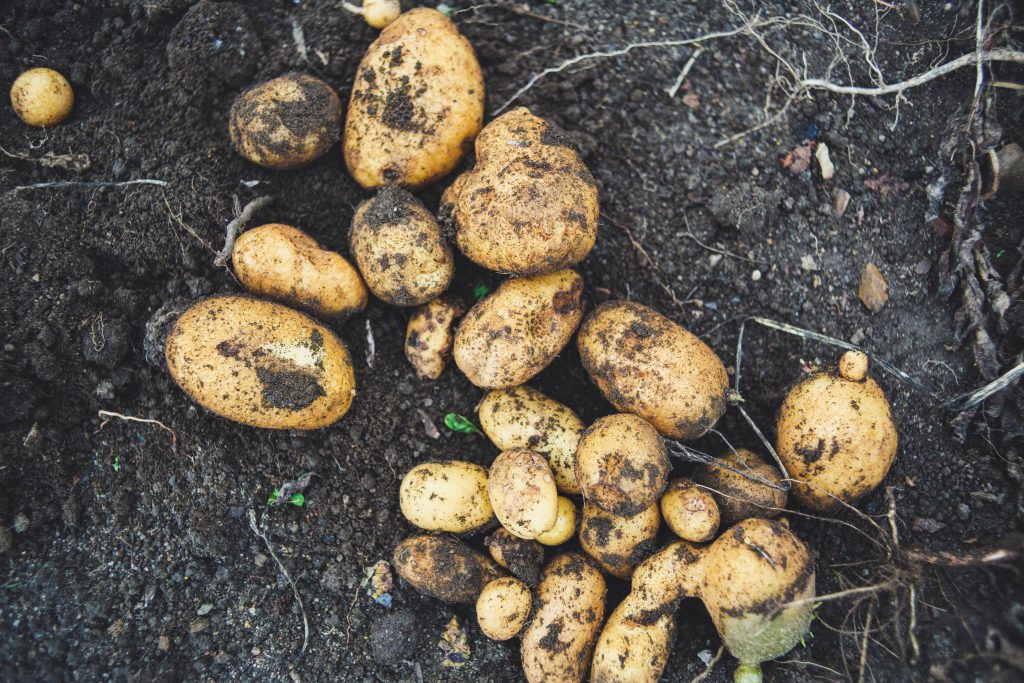
Carrots
Carrots are another type of root vegetable that is cold-hardy and easy to grow in a small garden. If you didn’t know, the original carrots were actually the purple, white, red, yellow, and black varieties. The orange carrots are relatively new!
Specific Plant Varieties For Florida:
- Imperator
- Danvers
- Chantenay
Nutritional value: Carrots are an excellent source of vitamin A.
Companion Plants:
- Radishes
- Chives
- Beetroot
Not Companions:
- Tomatoes
- Eggplants
- Peppers
Growing Methods: Before planting the carrot seeds, it is very important to fluff up or loosen the soil. If there is anything obstructing the growth of the carrots, they may not look like your average carrot. Next, plant the seeds in shallow quarter-inch holes that are one to three inches apart. Also, make sure there are 10 inches between the rows. Carrots germinate slowly, so make sure to keep the soil moist throughout its growth. After about 70 to 120 days, the carrots should be ready to harvest.
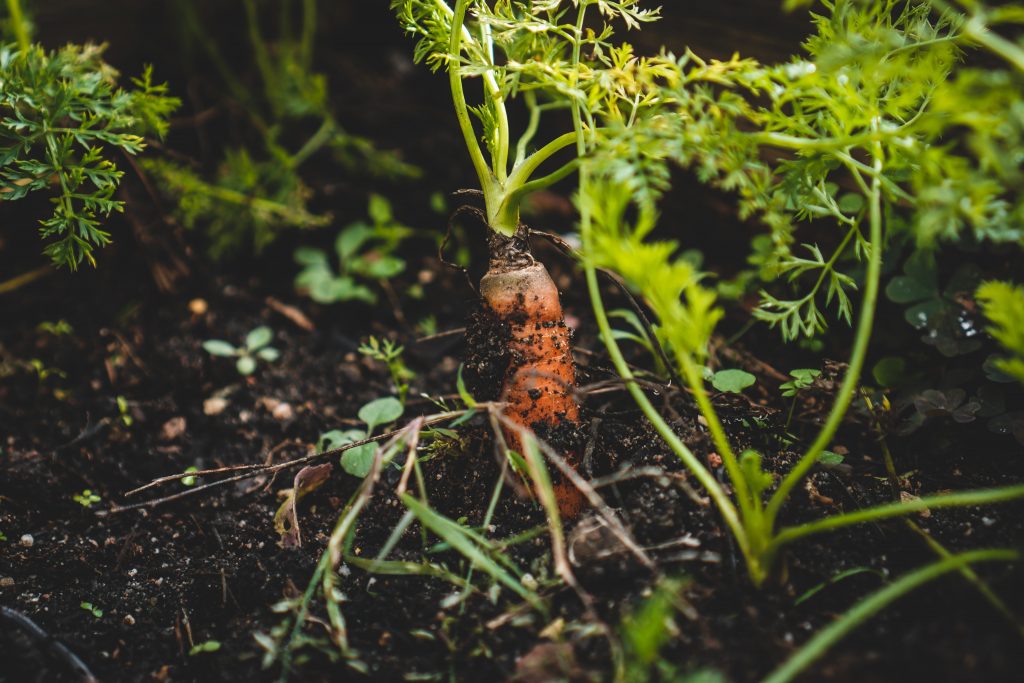

Swiss Chard
Swiss Chard is a mild-flavored spinach alternative. It is also known as the “spinach beet” and can be grown as an ornamental and edible vegetable.
Specific Plant Varieties For Florida:
- Bright Lights
- Bright Yellow
- Red Ruby
Nutritional value: Swiss chard is a good source of vitamin A and K, along with magnesium and vitamin C.
Companion Plants:
- Passionfruit
- Cauliflower
- Brassicas
Not Companions:
- Leeks
- Strawberries
Growing Methods: To start, swiss chard can be planted with seeds or transplants. When planting, place the plants six to twelve inches apart. After around 40 to 60 days after planting, swiss chard should be ready to harvest. For reference, the leaves will most likely be ready to pick when they reach about eight to ten inches long.
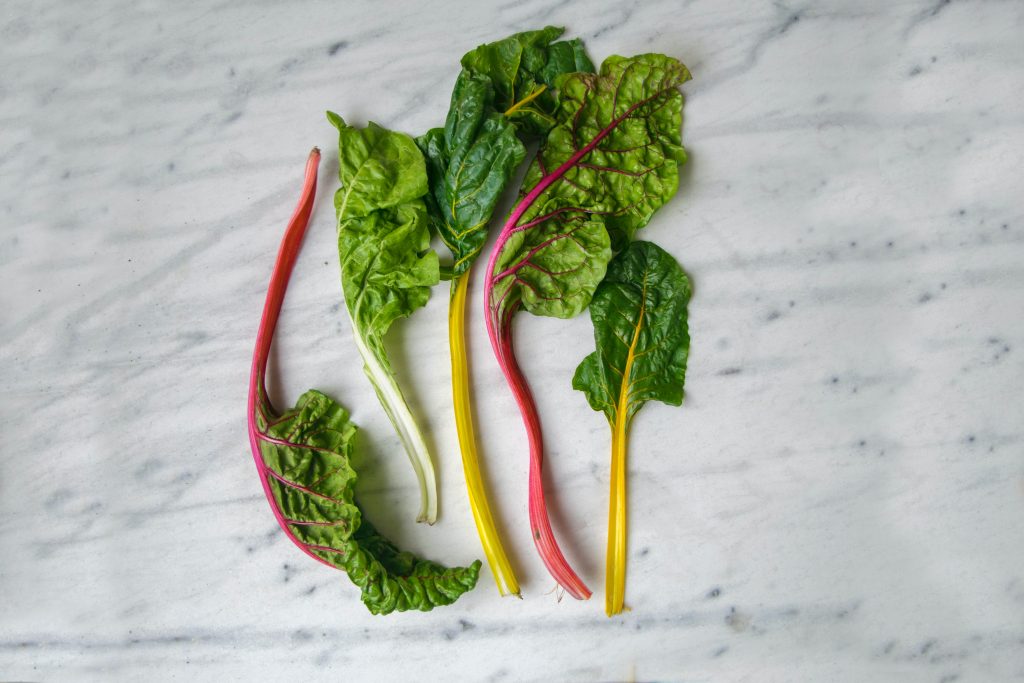
Celery
Celery is a stalky vegetable and is known to be very delicious when grown at home.
Specific Plant Varieties For Florida:
- Conquistador
- Giant Pascal
- Giant Red
Nutritional value: Celery is a good source of vitamin A, C, and K.
Companion Plants:
- Cucumbers
- Spinach
- Cabbage
Not Companions:
- Corn
- Aster Flowers
Growing Methods: To start, it is advisable to find stalks of celery from a local farm or farmer’s market for the best results. Then, cut off the bottom of a celery stalk and place it in a cup of water until roots emerge. After this step, you can plant the stalks in the ground. Also, it is very important that the area around the celery stays moist. After about 80 to 140 days, the celery should be ready to harvest.
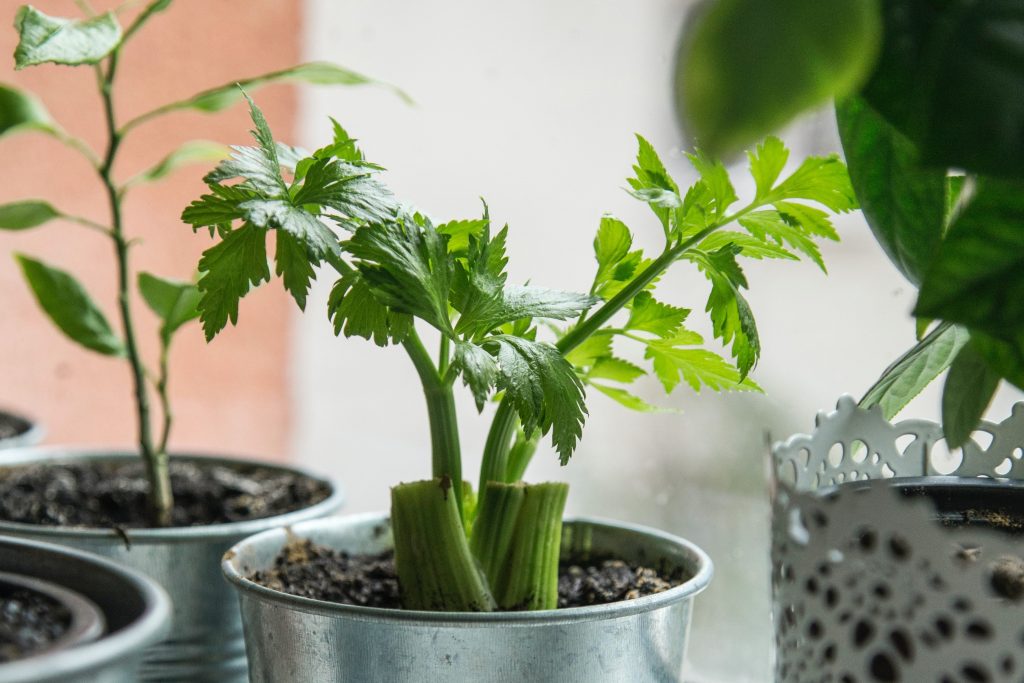
Watermelon
Watermelon is an annual vine fruit, but it can also be planted in the winter here in Florida. In fact, Florida is the only state in the country that can grow watermelon between December and April!
Specific Plant Varieties For Florida:
Smaller variety:
- Sugar Baby
Larger varieties:
- Jubilee (Florida Giant)
- Crimson Sweet
Nutritional value: Watermelon is high in potassium and vitamin C.
Companion Plants:
- Mint
- Squashes
- Sunflowers
Not Companions: It is advisable to not plant succession-type vegetable crops as watermelons produce chemicals that can inhibit seed germination.
Growing Methods: When planting watermelons by seeds, it is important to understand that you need a lot of space for them to grow. Depending on the variety you chose, the watermelons can need anywhere from 18 to 24 square feet around each plant. Once you have found a spot to accommodate this area, plant your seeds 36 inches apart. Then make sure there are seven to eight feet between each row. After about 80 to 100 days, or when the bottom of the melon is cream or yellow in color, it can be harvested.
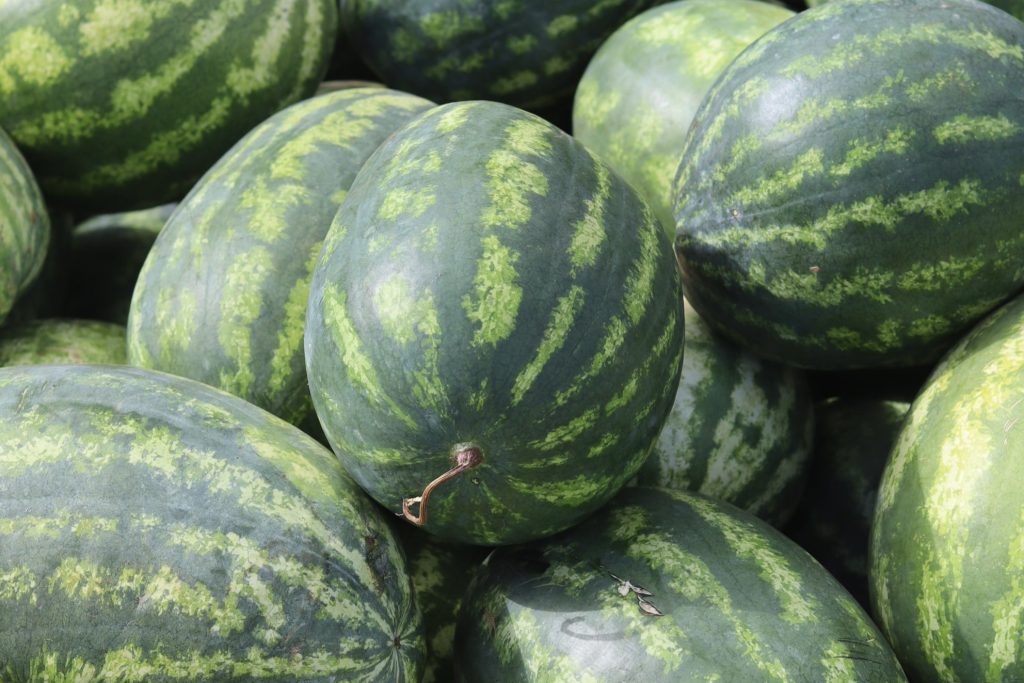
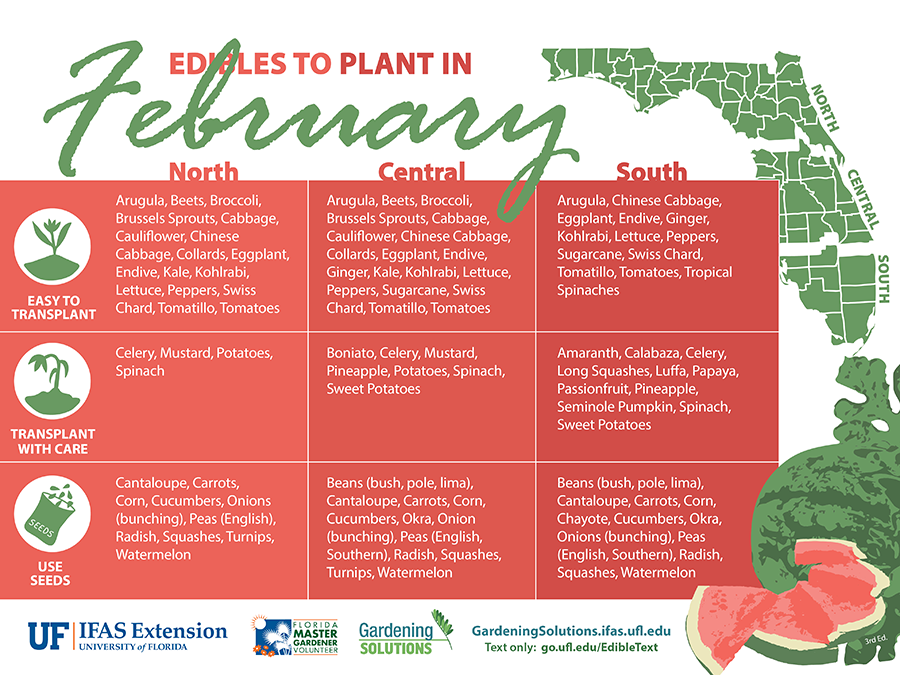
Cauliflower
Cauliflower is related to broccoli and kale. It actually comes in different colors than just white, like purple, green, and yellow.
Specific Plant Varieties For Florida:
- Brocoverde
- Snowball
- Snow Crown
Nutritional value: Cauliflower is a good source of vitamin C.
Companion Plants:
- Beans
- Spinach
- Celery
Not Companions:
- Dill
- Parsnip
- Radishes
Growing Methods: To start, make sure you plant your cauliflower seeds in an area with full sun. It is also advisable to keep at least 18 inches of space around each plant. After about 75 to 90 days the cauliflower should be ready to harvest.
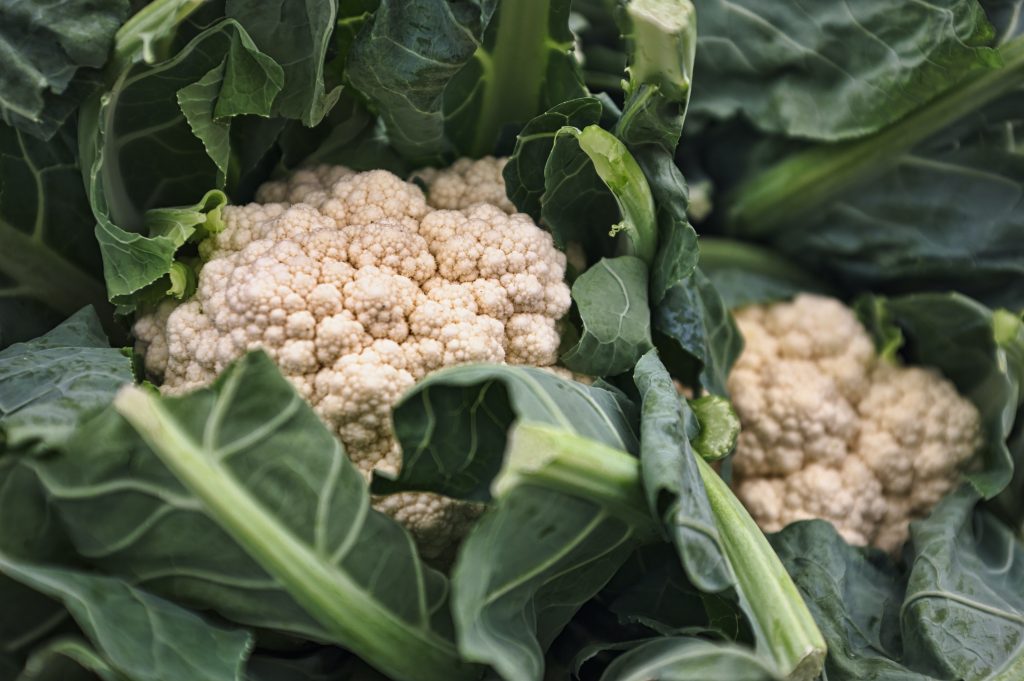
Boniato
Boniato, also known as batata or tropical sweet potato, is a type of cross between a baking potato and a sweet potato. They typically have red or purple skin with white flesh, with a fluffier and less sweet taste.
Specific Plant Varieties For Florida:
- Picadia
- Campeon
Nutritional value: Boniatos are a good source of potassium.
Companion Plants:
- Oregano
- Pole and Bush Beans
Not Companions:
- Squashes
- Tomatoes
- Sunflowers
Growing Methods: Similar to sweet potatoes, you can start with slips or transplants. Then place the slips 12 inches apart with rows three to four feet apart. After about 120 to 180 days, the boniatos are ready to harvest.
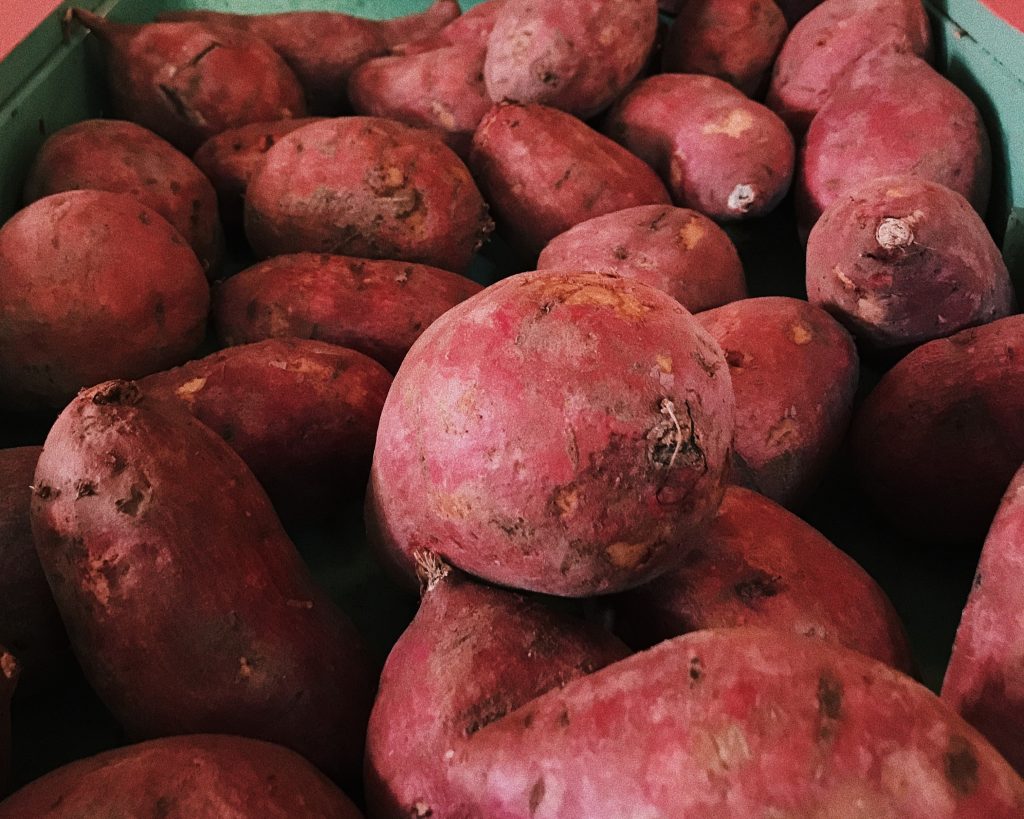
Corn
Sweet corn is a kernelled vegetable with high sugar content and a tasty starch to add to your meals.
Specific Plant Varieties For Florida:
- Silver Queen
- Sweet Ice
- Early Sunglow
Nutritional value: Corn is an excellent source of potassium and fiber.
Companion Plants:
- Soybeans
- Amaranth
- Potatoes
Not Companions:
- Tomatoes
- Celery
Growing Methods: Before planting your corn seeds, find an area that will receive six to eight hours of sunlight every day. Next, plant two to three rows of corn that are spaced 24 to 36 inches apart. Then plant the seeds one to two inches deep and 12 to 18 inches apart. Keep in mind when choosing the area that there is at least six to eight feet of space above the soil. For watering, make sure to water at least one inch a week in the mornings.
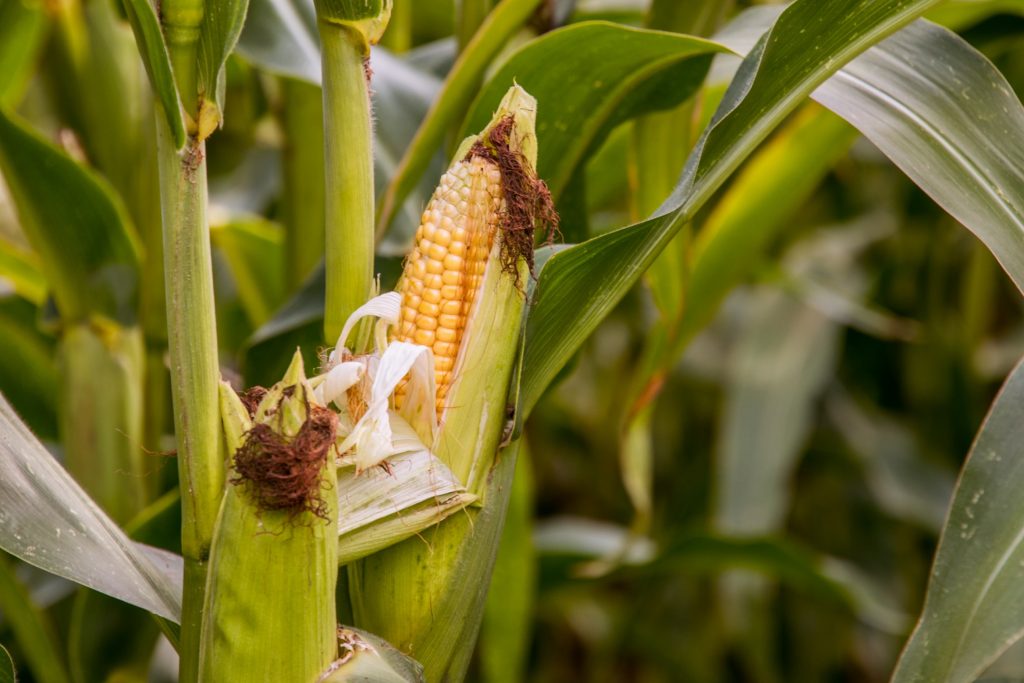
Where should you start?
- Find local plant nurseries. Not only are you supporting small businesses but you are also more likely to find healthy and local pest-resistant plants there.
- Whether you don’t have the time or the resources, our program Edible Landscapes is here to provide assistance!
- Edible Landscapes is a landscaping service that serves Central Florida, making it easy for you to grow food!
- Our services include raised garden bed installations, fruit tree installations, orchard installations, garden creations, in-ground food forests, native plant/pollinator landscaping, mulching, and more.
- Schedule a free consultation to see how we can transform your space into a beautiful and abundant garden.
- If you are looking to branch out from this vegetable gardening, check out an IDEAS For Us article on How To Start An Edible Mushroom Garden!
Sources
https://gardeningsolutions.ifas.ufl.edu/plants/edibles/vegetables/
https://gardeningsolutions.ifas.ufl.edu/plants/edibles/fruits/
https://nathaliestrassburg.com/the-medicine-garden/vegetable-companion-plants/
https://www.firsttunnels.co.uk/page/Companion-Planting-Guide
https://www.hgtv.com/outdoors/flowers-and-plants/fruit/companion-planting-for-watermelon
https://www.outdoorhappens.com/sweet-potato-companion-plants-good-and-bad-companions/

